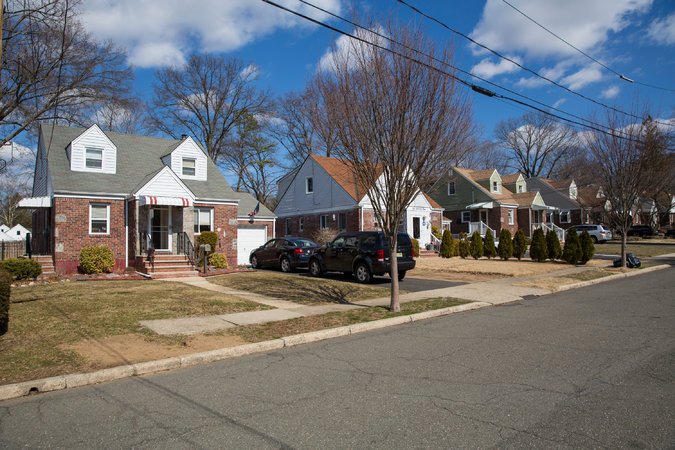In addition, the tax plans would increase the time it took homeowners to qualify for an exclusion from capital gains taxes owed when they eventually sold their homes. That would most likely reduce transaction volume — the bread and butter of agent commissions — by encouraging people to wait longer to sell.
Like just about every aspect of the tax plan, these measures would fall hardest on people who lived in high-cost, high-tax areas. According to an analysis of the plans by Moody’s Analytics, the nation’s most expensive real estate markets could see significant declines in home values under both versions of the tax plan.
“There really are big winners and losers here,” said Mark Zandi, chief economist at Moody’s Analytics. “If you live in New York or New Jersey, you’re going to get crushed. If you’re in West Texas or Nebraska, no big deal, and you may even benefit.”
In New York and New Jersey, which have expensive homes and high property taxes, home values could fall as much as 14 percent by 2019 under the Senate plan, according to the Moody’s analysis. The suburbs around Chicago, Cleveland and Philadelphia are also near the top of the list.

Those figures are estimates, so should be viewed with some degree of skepticism. Still, they reflect a fundamental truth: The tax code subsidizes homeownership, and that has raised the value of homes. All else being equal, removing those tax breaks should reduce home prices.
Some economists are skeptical that the tax bills would have a major impact on the housing market. Matthew Pointon, a housing economist at Capital Economics in New York, said the bills could lead some well-to-do families to buy somewhat smaller homes than they otherwise would. But he noted that most households already chose not to itemize their deductions, and so didn’t benefit directly from the housing-oriented tax breaks that the bill would eliminate.
And to the extent that the bills would cut taxes for most families, Mr. Pointon said, that could stimulate the housing market by giving prospective home buyers more money to spend.
Newsletter Sign Up
Continue reading the main story
Thank you for subscribing.
An error has occurred. Please try again later.
You are already subscribed to this email.
Vishwanath Tirupattur, United States housing strategist for Morgan Stanley, said the bills would most likely have a modest negative impact on both home prices and sales activity. He said other forces, including rising demand for housing among millennials and a limited supply of single-family homes, should help counterbalance the effects of the bills.
Advertisement
Continue reading the main story
Neither the House nor the Senate tax bill would repeal the tax code’s biggest gift to homeowners, the deductibility of interest for most mortgages. But they would make that deduction less valuable.
Both bills would roughly double the standard deduction, which would lead fewer households to itemize their deductions; households that take the standard deduction don’t directly benefit from the mortgage-interest deduction, which reduces the value of owning a home. The House bill would also cap the amount of mortgage debt eligible for the deduction at $500,000; the Senate bill would leave the cap at its present level of $1 million.
The tax plans could also hurt the housing market in a less direct way. Most independent analyses estimate the bills could add $1 trillion or more to the federal deficit at a time when unemployment is low and the Federal Reserve is raising interest rates. With more demand in the debt market, standard economic theory suggests that mortgage rates would increase faster than they would have absent a higher deficit, raising the cost of financing a home.
Economists, including Mr. Zandi, have never been particularly fond of the various tax subsidies for homeownership. They favor homeowners over renters and distort the housing market and even migration patterns by encouraging people to buy bigger homes in higher-tax suburbs.
But now that those tax breaks are baked into the system, homeowners have come to count on them and in some cases could end up “underwater” — that is, their home would be worth less than their mortgage — if their deductions were abruptly ripped away. Mr. Zandi said he favored some kind of phase-in period so that markets could adjust more gradually.
“In some of these communities, it could be really damaging to the economy,” he said.
Continue reading the main story
Article source: https://www.nytimes.com/2017/11/21/business/economy/tax-real-estate.html?partner=rss&emc=rss
Speak Your Mind
You must be logged in to post a comment.